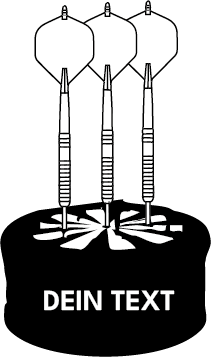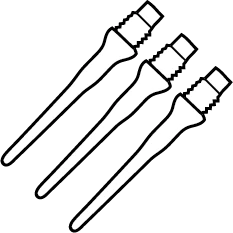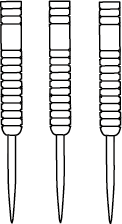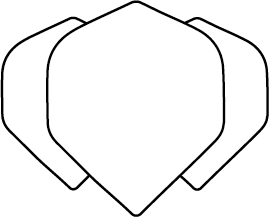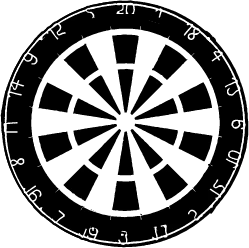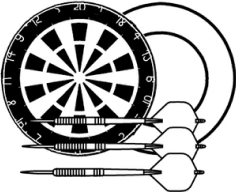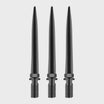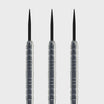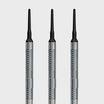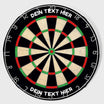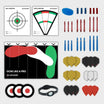Anyone who feels early on that they have the potential for a great darts career should start looking into the possibilities early on to gain a foothold in the PDC circus.
The easiest way to take a step towards becoming a darts professional is to secure the so-called Tour Card through the PDC Q-School.
Well, “easy” is probably a bit of an understatement, because ultimately, several hundred darts players take part in the PDC Q-School, all of whom want to fulfill their dream of becoming a darts professional.
Nevertheless, this tournament is considered the gateway to the PDC for everyone and perhaps also the start of a great darts career.
In this blog post, we take a closer look at the beginnings of Q-School and explain how the tournament format works.
The PDC Q-School: How it all began
Of course, everyone knows about Premier League Darts . But since 2011, the PDC has had a completely new system in place to enable virtually all players in Germany and Europe to take the first step toward becoming a professional darts player .
This is done through the so-called Q-School, which exists in Great Britain and in Germany for the remaining European countries.
Initially, a system was used in which the top 101 players in the PDC Order of Merit automatically received a tour card. In addition, the two finalists of the PDC Women's World Championship were eligible.
The remaining 25 tour cards were awarded through the PDC's Q-School. Since then, the number of players who qualified through the PDC Order of Merit has been reduced, so more tour cards are available .
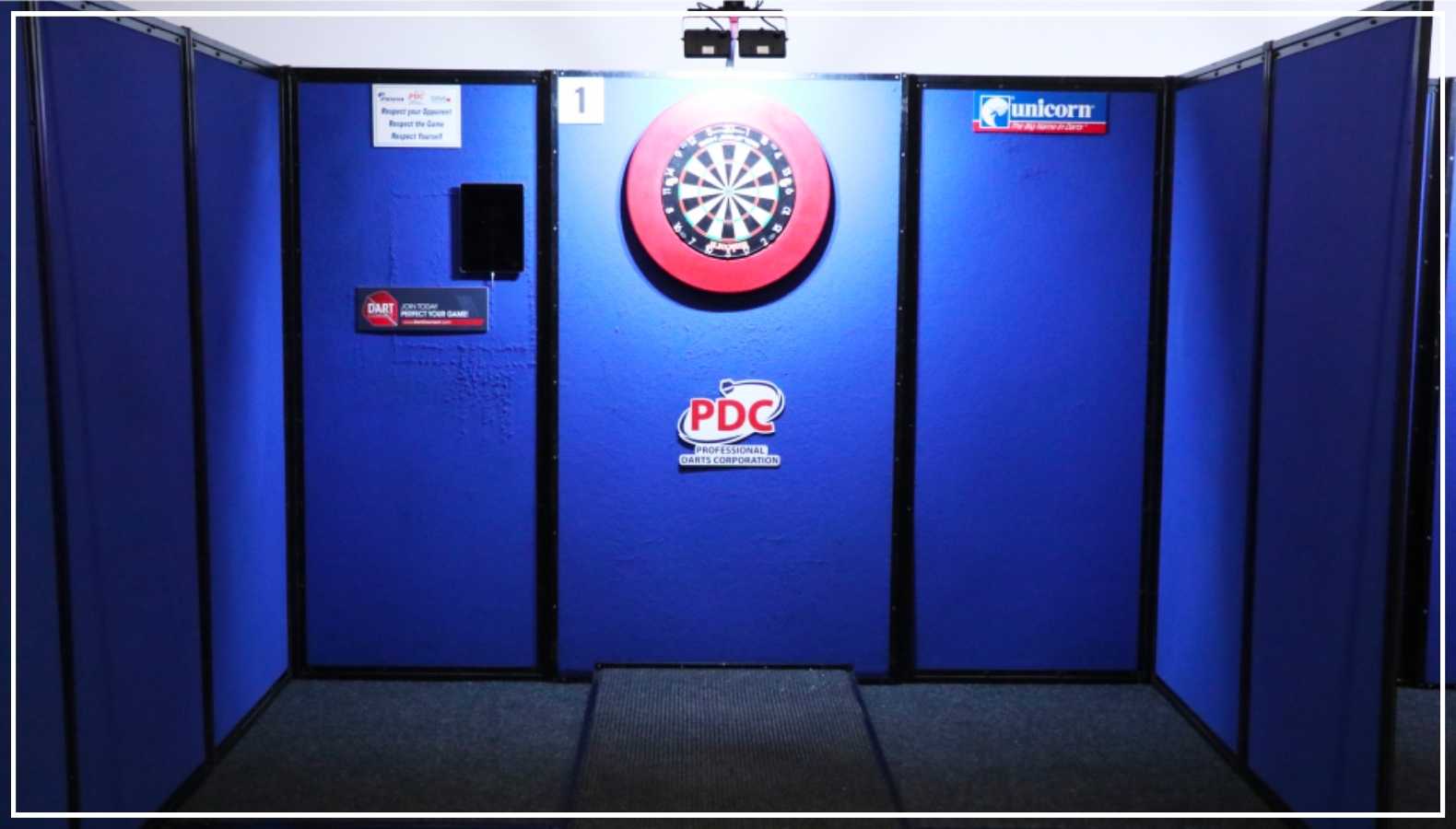
But what is Q-School and what is the benefit of receiving a tour card?
The Tour Card allows a player to participate in all major tournaments throughout the year . For example, players have the opportunity to participate in all Players Championship tournaments and the UK Open Qualifier tournaments.
The prize money ultimately flows into the Order of Merit, which allows a darts professional to work his way up .
Q-School, for example, takes place over four consecutive days in Germany. If a player reaches the semifinals , he or she receives a tour card . Over four days, 16 tour cards will be awarded in this way.
Infobox: The remaining tour cards are earned by the players ranked below them in the PDC Q-School Order of Merit. At least, that was the case at the beginning of Q-School. You can read about how the qualification process for a tour card works today two sections below.
Can anyone participate in Q-School?
In principle, any player over the age of 16 can apply for Q-School. This, of course, ultimately affects the quality of the players.
Many players would certainly like to have the experience of playing in such a tournament without having to demonstrate the necessary quality.
For this reason, the PDC has decided to introduce a relatively high entry fee to put a stop to such players – after all, Q-School is already about serious qualifying tournaments.
The entry fee is currently just over 500 euros . If a player actually earns a tour card, he or she will have to add just over 100 euros.
This means that in the end, only players who are actually serious about becoming professional darts sign up.
Tip: If you would like to watch such a tournament, you also have the chance to follow the PDC Q-School via the DartConnect live stream – or via the PDC’s official streaming channel.

Where can I register for the PDC qualifying school?
Registration for the Qualifying School is done either via this link for already registered users or via this link for new registration .
After registering, you will receive an email asking you to confirm your participation in the tournament . However, the registration process may take up to 48 hours .
Participation costs £475 per player and includes the DRA Sanction Fee for 2024. The registration deadline for 2024 is January 4, 2024 at 2:00 PM GMT.
The Games themselves will take place simultaneously in Great Britain and Germany from January 8 to 14, 2024. The venue in Germany is Wunderland Kalkar.
How does the ranking work at the PDC Qualifying School and who receives a tour card?
Now we come to another important point that should interest many players.
How does the ranking work and who currently receives a tour card?
Important for this paragraph: we'll limit ourselves here to which players receive a tour card through Q-School. A few tour cards are also awarded to other players outside of Q-School. However, this isn't the focus of this article.
- UK Qualifying Tour: Winner and Finalist
- European Qualifying Tour: Winner
The remaining tour cards will be awarded based on the Order of Merit of the Q-School tournaments. Thus, 12 tour cards will initially be awarded to winners and finalists through the tournaments, with the remaining ones based on the Order of Merit.

Can you play on the PDC Circuit without a Tour Card?
There is indeed an opportunity for players without a Tour Card to play on the PDC Circuit. The PDC Challenge Tour is specifically designed for those who missed the opportunity to sign up.
The PDC Challenge Tour consists of 24 tournaments , each with a top prize of £ 2,500. This is, of course, a real tournament with a darts caller , like the ones you see on TV.
Of course, being there is everything, even if you missed the opportunity to register. Players also have the opportunity to participate in the Associate Qualifiers for the European Tour tournaments.
There is also a Development Tour for players under 24 years of age .
What are the differences between the European Qualifying Tour and the UK Q School?
Now we have already discussed the changes since 2018 between the UK Q-School and the European Qualifying School.
The reason for this is that, to avoid long travel distances, the PDC decided to create two locations: one in Great Britain for the large number of players in the UK, and one in Hildesheim, Germany, for the rest of Europe.
- UK Q-School participants: All players from Great Britain, Gibraltar, Northern Ireland, Ireland
- European Q-School participants: All players from the remaining European countries
Infobox: Of course, players from outside Europe can also participate in the tournaments. They can ultimately choose which PDC Q-School they want to participate in.
In total, over 600 players competed in the tournaments in Wigan and Hildesheim this year to win one of the coveted tour cards, which is valid for two years .
German players at the PDC Q-School – winners and statistics
The standard has risen dramatically in recent years. Players who consistently average below 80 points now have virtually no chance of securing one of the coveted tour cards.
To get an idea of the level at which the Pro Tour players are already active, we have created a short overview of the most important statistics from Q-School .
And this clearly shows that there are already semi-professionals at work here who still have considerable potential for improvement if they develop strongly:
- 9-darter: Six nine-darters in the history of Q-School
- German winner 2020: Steffen Stiepmann (on day 4 in Hildesheim)
- Required average for a tour card: at least 85 over four tournament days
- Winner of the entire Q-School 2020: Dirk van Duijvenbode (with 100 legs won and 18 wins)
If you are looking for more darts records , we have the right one for you on our website.
Conclusion
We hope that this article has given you an insight into the PDC qualifying school and that you now know what it is, who is allowed to take part and why it is worth paying the prize money .
You also saw that there is an opportunity for players who missed the opportunity to register and still have a chance.
Have you had any experience with the PDC qualifying school? If so, what kind? We look forward to your comments.
Ready to immerse yourself in the fascinating world of darts? Discover the secrets, tactics, and captivating stories behind this exciting sport. Click in now and become a darts enthusiast!
- Learn more about 11 curious facts about the Darts World Championship . Record runner-up Phil Taylor, whitewash sensations, national statistics, and more.
- Learn more about the Darts Premier League . Get an overview of the PDC Premier League's game format, schedule, and participants.
Sofern nicht anders angegeben, unterliegt das im Beitrag gezeigte Bildmaterial mit Bezug zu Dartspielern und verwandten Themen dem Copyright der Professional Darts Corporation (© PDC).

